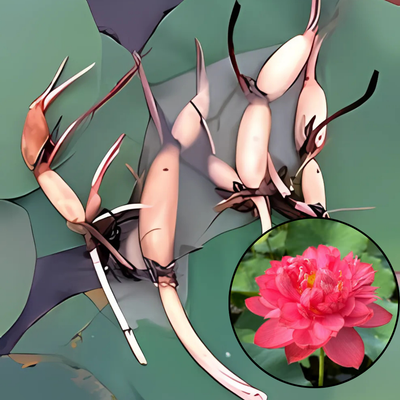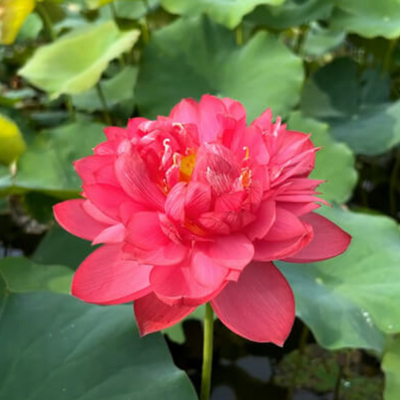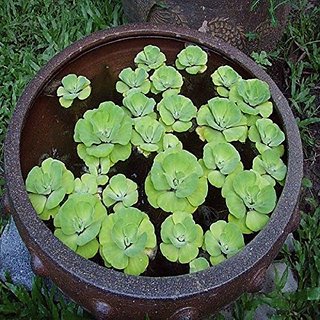Green Paradise Offers Hybrid & Sweet
Red Jackfruit Plant
About Red Jackfruit Plant
The jackfruit (Artocarpus heterophyllus) is a tropical tree species belonging to the Moraceae family. It is native to South and Southeast Asia and is widely cultivated in tropical regions around the world. Jackfruit is the largest fruit produced by any tree, and it has gained popularity in recent years as a meat substitute for vegetarians and vegans due to its meaty texture.
The traditional jackfruit has a green or yellowish-green outer skin and Reddish or orange flesh when ripe, with large, edible seeds inside. The fruit can weigh up to several kilograms and has a unique flavor that is often described as a mix of banana, pineapple, and mango.
How To Grow Red Jackfruit Plant
Growing a red jackfruit plant can be a rewarding experience. The red jackfruit, also known as the Red-fleshed jackfruit (Artocarpus heterophyllus), is a variety of jackfruit with red or maroon-colored flesh, which differentiates it from the more common yellow-fleshed jackfruit.
Here's a step-by-step guide to help you grow a red jackfruit plant:
Climate and Location:
Red jackfruit thrives in tropical or subtropical climates with temperatures between 20°C to 33°C (68°F to 91°F). It requires a lot of sunlight, so choose a location in your garden or yard that receives at least 6-8 hours of direct sunlight daily.
Soil Preparation:
Red jackfruit plants prefer well-draining, loamy soil that is rich in organic matter. Ensure the soil has good water retention but doesn't become waterlogged. If the soil in your area is heavy or clayey, consider adding sand and compost to improve drainage.
Planting the Seed:
Red jackfruit can be grown from seeds. Plant the seeds directly into the ground or in a large pot. Plant the seeds about 2 inches deep with the pointed end facing down. Water the soil gently after planting.
Watering:
Red jackfruit plants require regular and consistent watering, especially during the growing season. Keep the soil moist, but not waterlogged. During the hot summer months, you may need to water-soak more constantly.
Mulching:
Applying a layer of organic mulch around the base of the plant will help retain soil moisture, suppress weeds, and improve the overall soil quality. Use materials like compost, wood chips, or dried leaves for mulching.
Fertilizing:
Red jackfruit plants benefit from regular fertilization. Use a balanced toxin with equal quantities of nitrogen, phosphorus, and potassium. Apply the toxin every 2- 3 months during the growing season. Follow the manufacturer's instructions for the correct lozenge.
Pruning:
Prune the red jackfruit plant to remove dead or diseased branches, improve air circulation, and shape the plant. Do the pruning during the dormant season, after fruiting. Be cautious not to remove too much foliage as it can reduce fruit production.
Support and Training:
When the plant is young, you may need to provide support to help it grow upright. Use stakes or trellises to train the plant's main stem vertically. As the plant matures, it will become self-supporting.
Pest and Disease Control:
Aphids, mealybugs, and scale insects are some typical pests to watch out for. However, treat them with organic germicides or adulatory water, If you notice any infestations. For disease prevention, avoid overwatering and ensure good air circulation around the plant.
Harvesting:
Red jackfruit can take several years to bear fruit. Once the fruits are mature and ready for harvesting, they will start to soften, and the skin color will change from green to yellow or brown. Harvest the fruits carefully using a sharp knife or pruners.
Remember that growing a red jackfruit plant requires patience, as it can take several years for the tree to produce fruit. However, with the right care and attention, you can enjoy the delicious and unique red-fleshed jackfruit when the time comes.








